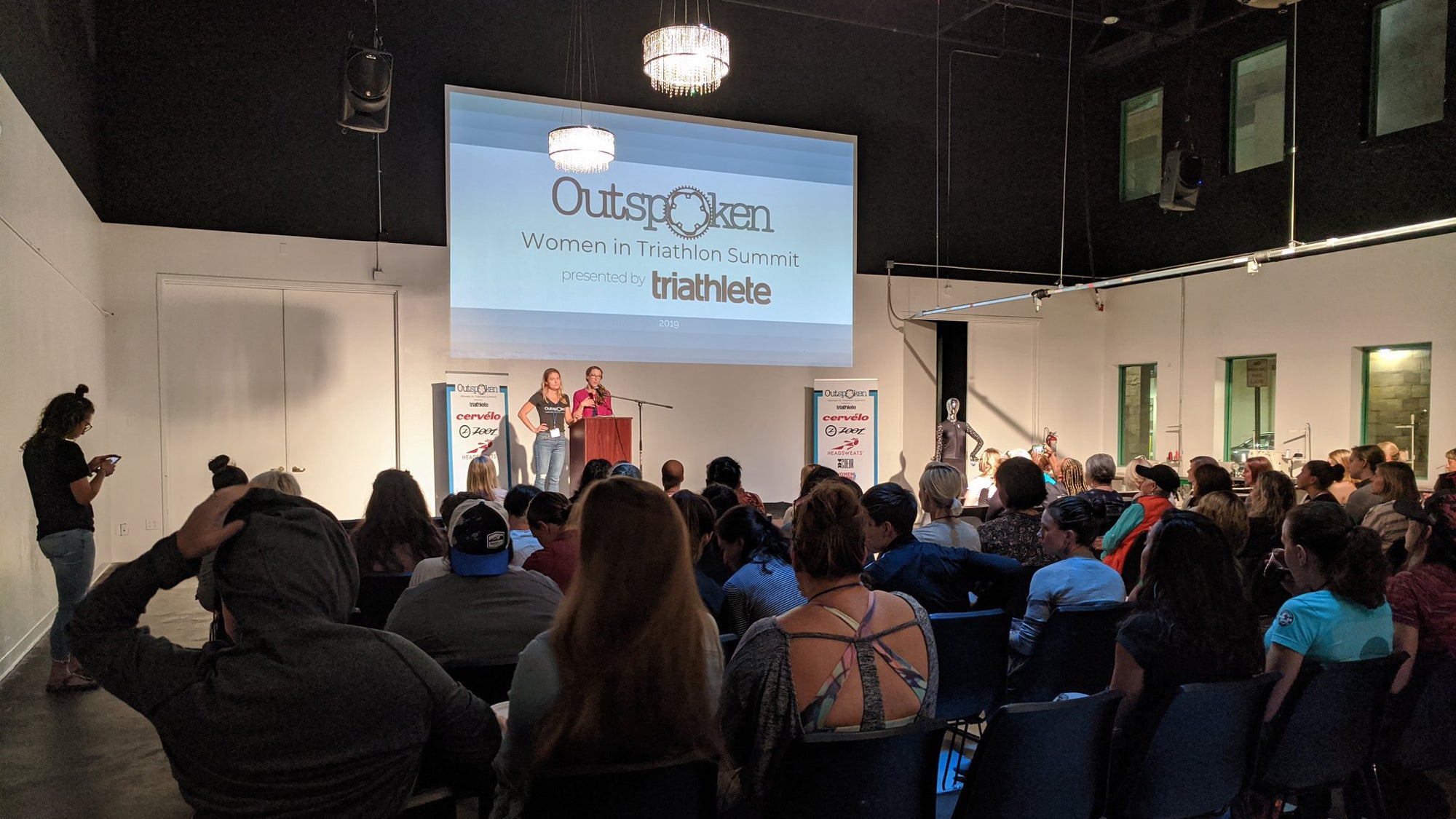5 Takeaways From the 2019 Outspoken Women in Triathlon Summit

Photo provided by Outspoken.
Thought provoking, passionate, and—at times—heated, the discussion and debate that took place at this year’s Outspoken Women in Triathlon Summit was testament to the energy and intelligence of the people involved in our sport. The focus set by Outspoken founders Dr. Sara Gross and Dr. Lisa Ingarfield was locked firmly on what needs to happen in the endurance world if we are going to succeed in achieving true equity and inclusion for all, regardless of gender, age, ability, sexual orientation, or ethnicity. Leaving the Outspoken weekend with some tangible takeaways is an important first step in effecting change—and here are a few of ours…
1. We Can Drive More Change Together
Change cannot and will not happen overnight, but it was overwhelmingly apparent this weekend that there is tremendous ambition and drive to exact change that is long-lasting and far-reaching. When any cohort of passionate people come together and effectively focus their attention on what they want to achieve, a groundswell of energy grows that feels buoyant and infectious—a feeling that we can be more and do more when acting collectively than we could ever do alone. Together we are greater than the sum of our parts—and those parts were closely examined throughout the weekend.
Olympian turned long course racer Sarah True kickstarted the summit on Friday evening with her keynote speech that discussed (among other things) the impact and effect privilege has had on her athletic career.
2. Appreciate How Far We’ve Already Come
Entrepreneur Sally Edwards gave the opening keynote on Saturday morning that featured insights into the sexism she has encountered throughout her involvement in endurance sports spanning more than 40 years. Triathlon today pays men and women equal prize money, but Edwards highlighted how this hasn’t always been the case. She referred to a victory at a race in Nice, France, where the men’s champion received $7,000 in prize money while she received $3,000. “Those race organizers still owe me $4,000,” she said.
“With interest!” shouted a voice from the audience.
3. Pay Attention to How Female Athletes Are (and Aren’t) Represented in Media
Three of the four editors of Triathlete attended Outspoken—editor-in-chief Erin Beresini, senior digital editor Liz Hichens, and myself, the managing editor. We were all there to listen and learn—and we certainly did. Sunday’s panel, entitled Media, Language, and Representation in Sport was, at times, a heated debate about what and whom we see in the media. The panel featured Beresini, together with freelance writer and author Susan Lacke, and Dr Mako Ward, a clinical assistant professor at Arizona State University. The discussion was a constructive analysis of what the media does well—and where it fails—when it comes to diversity and equal representation. Beresini highlighted areas in which the media often falls down, such as showing less of the women’s race versus the men’s at live events, or using qualifiers when describing female athletes: “athlete mom Rachel Joyce,” for example.
4. It’s Tough to Tackle Your Own Implicit Biases
Saturday’s Outspoken keynote speech from transgender athlete and activist Dr. Rachel McKinnon, as well as the subsequent panel entitled Inclusivity and Gender Identity in Triathlon, highlighted the importance of examining our own implicit biases. At times challenging and perhaps even uncomfortable for some, the content and topics covered were thought-provoking. The most immediate call to action from this keynote and panel was for us all to examine our own implicit biases. Whoever we are and wherever we come from, we all have our own subjective ways of looking at the world based on our experiences, beliefs, and attitudes. Doing a deep dive on this and really looking closely at the way in which we view the world is perhaps one of the most straightforward first steps we can all take, whether present or not at this weekend’s summit.
5. Be Your Own Agent of Change
Being our own agents of change was the theme of the REINAS talk by Rachel Joyce and Dana Platin, and at the end of their session they asked every attendee to make an action plan, highlighting one item they will work on or change in 2020, no matter how big or small. Making—and acting upon—an action plan after a weekend like the Outspoken Summit is fundamentally important. If there is talk without action then we have not only wasted our time and energy, but we are also failing the people whose stories need telling, those who are being marginalized, ostracized, or ignored. The path ahead might not be an easy or straightforward one, but it is an important one and one to which we are all committed.